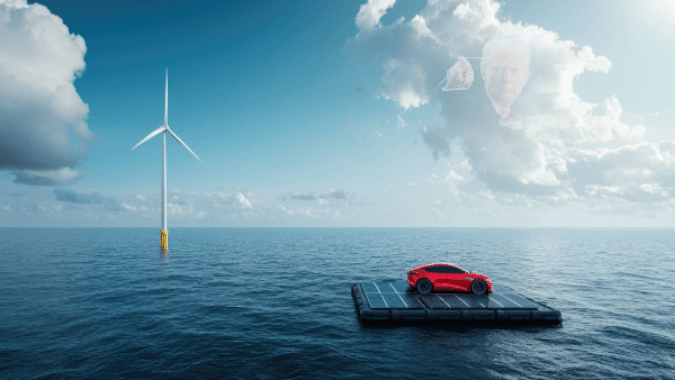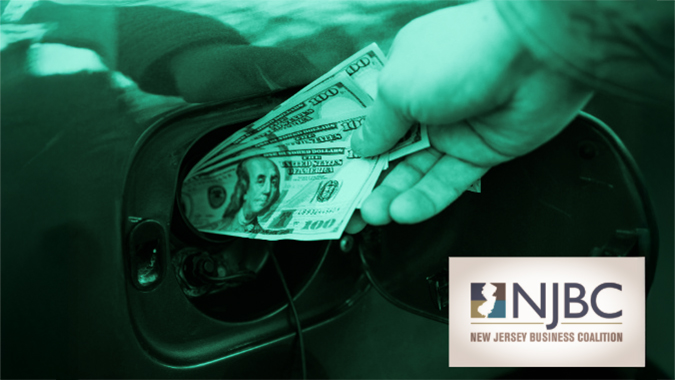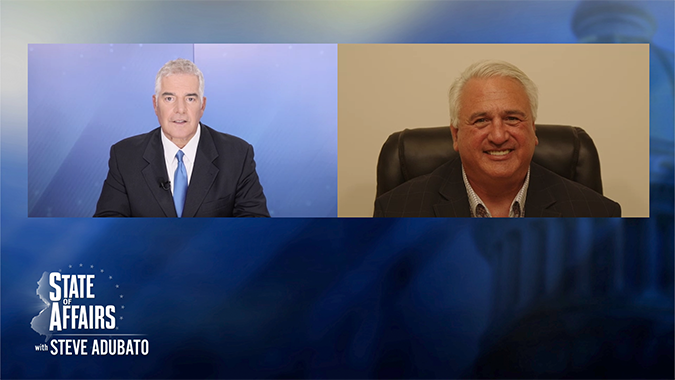President Donald Trump issued a variety of executive orders relating to energy on the evening of his second inauguration, with a common denominator of them all seemingly going in the opposite policy direction of his predecessor.
With Gov. Phil Murphy following, or going even beyond federal energy and environmental policies, New Jersey figures to be one of the most impacted by Trump’s EOs.
“The Trump Executive Orders on energy and environmental justice could be policy game changers and could have a profound impact on the nation's and New Jersey's policies,” said NJBIA Deputy Chief Government Affairs Officer Ray Cantor.
“Both the Biden and Murphy administrations put climate and environmental justice policies at the center of everything they did, often with harmful results for our businesses and residents.
“While we support rational policies to reduce carbon emissions over time, many of the policies that were and are being pursued, such as EV mandates for cars and trucks and building electrification, were too aggressive. They would harm both businesses, consumers, as well as lower income populations who couldn't afford to comply.”
But Cantor also said that some of the EOs could face legal and procedural obstacles, which could slow their potential impacts.
Declaring a National Energy Emergency
This EO is designed to expedite the permitting process for energy projects, reduce environmental regulations and promote fossil fuel development, particularly in regions like Alaska.
In the order, energy is defined as “crude oil, natural gas, lease condensates, natural gas liquids, refined petroleum products, uranium, coal, biofuels, geothermal heat, the kinetic movement of flowing water, and critical minerals.”
Notable energy omissions: Wind and solar.
“The ‘emergency’ declaration is justified by the president as a means to give broad authority to increase oil and gas production, seemingly to recover from President Biden’s four years of moving away from oil and gas production,” Cantor said.
“What you will likely see are federal agencies and executive departments using their authorities to identify, lease, site, produce, transport and refine oil, including resources on federal lands,” Cantor said.
Cantor said the Trump administration will also be considering how emergency provisions of the Clean Water Act could possibly support energy projects.
“These are all steps that would increase supply of domestic oil, which would lower gas prices – which is what has driven a lot of added business costs that have been filtered down to the consumer,” Cantor said.
Unleashing American Energy
This EO allows federal agencies to expedite permitting processes and approvals, but most notably – particularly in New Jersey – it eliminates an electric vehicle (EV) mandate.
Gov. Murphy’s administration has already adopted the Advanced Clean Cars II programs, requiring that new gas-powered cars can’t be sold in the state by the year 2035.
A similar program, the Advanced Clean Truck rules, contained similar provisions for medium to heavy-duty trucks.
NJBIA has been the leading business voice in New Jersey in opposing the gas-car ban, due primarily to costs and lack of charging infrastructure.
Lawmakers in Trenton, from both sides of the aisle, have largely opposed it – as has the public.
So, what does this mean for New Jersey?
“The EO basically ordered EPA to take action to eliminate the mandates,” Cantor said. “But how you got into the mandate will determine how you get out.
“There are two options under the Clean Air Act for engines – one is to adopt EPA’s federal standard, the other is to adopt the California standard, which New Jersey has done. EPA would need to revoke the waiver to get rid of the California requirement. To get rid of the EPA standard, EPA would need to change the regulations.”
Cantor also said that such a roll back of regulations would likely face legal challenges from environmental groups.
Offshore Wind Leasing
Trump’s EO calling for a temporary withdrawal of all areas on the outer continental shelf from offshore wind leasing and a review of the government’s leasing and permitting practices for wind projects was hardly a surprise.
He campaigned at the Jersey Shore on a promise to stop offshore wind farms.
While offshore wind has had fits and starts in New Jersey, Cantor stressed concern that “the pause in offshore wind leasing and other changes being made, could harm our nascent industry still trying to get off the ground.
“There might be resistance to offshore wind, but at the end of the day, it would diversify our energy portfolio and result in job creation and help boost our economy.”
What Happens Next?
Cantor said EOs can be made in the short term, but achieving the missions of such orders often is a longer-term effort.
“Overall, it’s safe to say we applaud these measures for bringing balance to our energy policies, but time will tell how effective they are,” Cantor said. “Further actions, such as the adoption of regulations, will need to be taken to effectuate the orders and there will be legal challenges.
“We also should remember that New Jersey also has its own legal authorities to take certain actions, so it is unclear how it will ultimately play out. But New Jersey, for its part, needs rational policies that will keep our energy affordable, abundant and reliable. We look forward to working with the Trump administration, the Murphy administration and the next Governor, to ensure our energy policies are effective and affordable.”




